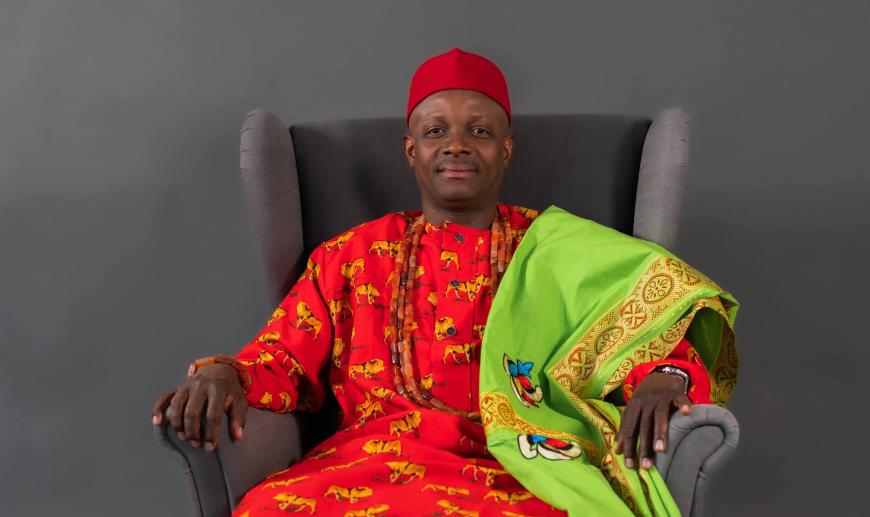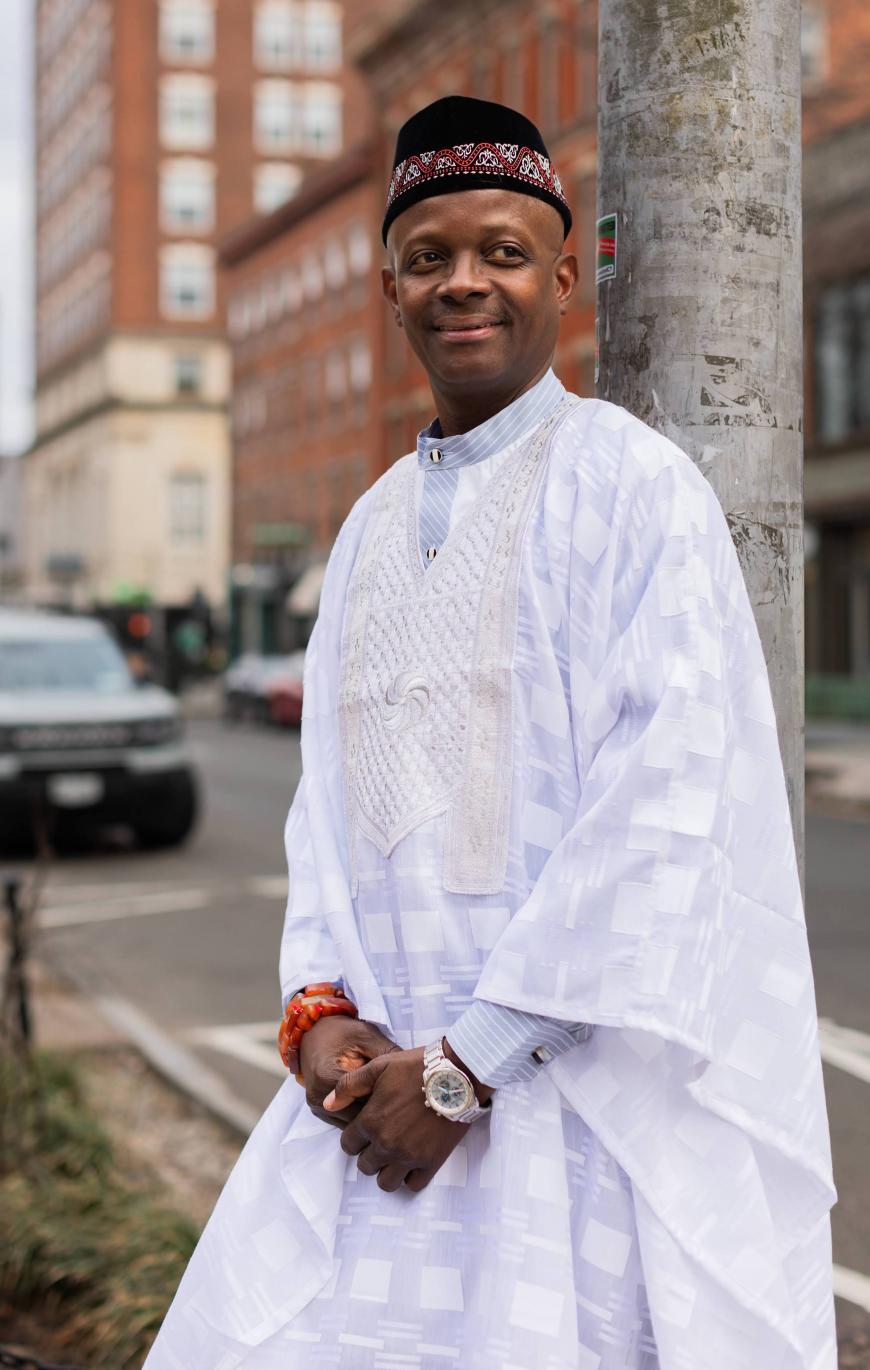
Growing up in Nigeria, Okwy Osadebe experienced his father’s music in the most direct and visceral fashion.
At the time, he didn’t know or understand that Osita Osadebe (1936–2007) was a pioneer of the ebullient Igbo highlife sound, a musical style that turned nightclubs and theaters across West Africa and the U.K. into bouncing celebrations. While Osita Osadebe’s lyrics were often laced with witty social commentary, his feel-good grooves provided such potent medicine that he was dubbed the “Doctor of Hypertension.”
Initially, Okwy didn’t seem destined to follow in his father’s bandleading footsteps, as his talent echoed an even older generation. Growing up in Onitsha, Nigeria’s second largest metropolitan area, Okwy and his siblings spent weekends in the family’s village, where his grandfather, the renowned dancer Obi Osadebe, inculcated them in Igbo culture.

By the age of 6, Okwy’s talent started to manifest, and his father “knew I could dance like my grandfather,” Okwy said on a recent phone call from Connecticut, where he’s based when he’s not in Nigeria. “If [my father] had a show and it was in a convenient venue, he’d take me and make me dance onstage for him. It took off from there. It was fun because they threw money at me, what we call ‘spraying’ money. I love the way they treated me with respect, as little as I was. ‘You dance so good! You dance so great!’”
Okwy’s path from dance prodigy to highlife bandleader was hardly a straight line, but in recent years he’s embraced his father’s legacy. Next week, he performs a tribute to Osita Osadebe with Highlife Soundmakers International at Berkeley’s Freight & Salvage on July 25 and Los Angeles’ Grand Performances on July 27. Focusing on music from Okwy’s 2023 album Igbo Amaka, the program features a West Coast version of his band, assembled and rehearsed by bassist Babá Ken Okulolo, a leading proponent of Nigerian music in the Bay Area for four decades.
Okulolo first performed in the Bay Area in 1985 with Nigerian juju superstar King Sunny Adé (who got his start playing highlife, like many Nigerian musicians coming up in the wake of independence). Before that, Okulolo gained widespread renown performing with Fela Kuti, who also got his start playing highlife in the 1960s before forging Afrobeat, his potent blend of American funk and traditional Igbo and Yoruba rhythms.
Okulolo’s holding down the bass chair and has recruited fellow Nigerian masters such as Fela Kuti guitarist Adesoji “Soji” Odukogbe, who lives in Emeryville; L.A.-based percussionist Barry Uba, who first gained notice in the great Afrobeat combo The Apostles; and guitarist Eugene De Coque, younger brother of another Igbo highlife icon, the late Oliver De Coque.
Okulolo never played with Osita Osadebe, “but I grew up listening to his music and love his style of highlife,” the bassist said. “As a young man, highlife was the heartbeat of entertainment. There were several really great highlife musicians, Osadebe, Victor Olaiya, and Bobby Benson,” whose band launched many future highlife stars.
Highlife was actually born in Ghana in the 1920s and took shape as a melodic fusion of traditional Ghanaian rhythms, jazz horns, and rippling guitar lines. Benson played a central role popularizing the style in Nigeria in the 1950s with a buoyant Caribbean infusion, and Osadebe perfected his own highlife sound drawing on traditional Igbo music and lyrics.
That ethnic dynamic shaped the music’s trajectory when a brutal civil war broke out in the country in 1967, driven by the Igbo people’s desire for independence. By the time the Biafran War was over in 1970, Ibgo highlife was in eclipse in Nigeria, as many musicians had fled, though Osadebe continued to turn out hits, like 1984’s “Osondi Owendi.”
Growing up in Onitsha, Okwy and his siblings were fairly sheltered, and it was only when he reached his mid-teens that he started to understand his father’s influence. Okwy found his own creative outlet as a professional dancer focusing on salsa. Embraced by the Latin dance community, he was often mistaken for Cuban or Puerto Rican, “but highlife music kept calling me back, and not just because my father did it,” Okwy said. “There’s a spirit in me, the same one that pushed my father to do it better than anyone in Nigeria.”
Okwy’s older brother, Onyinye Osadebe, became the family highlife standard-bearer. For several years, while continuing to dance, Okwy managed his brother’s band. But with his brother’s unexpected death in 2019, “I picked it up immediately, and it’s never left me,” he said.
In recording the tribute to his father, Igbo Amaka, Okwy faced the challenge of trying to encompass the career of a vastly prolific artist. Osita Osadebe recorded some 500 compositions during his life, “way too many for me to consider. I had a hard time picking the right songs,” Okwy said.
“I wanted to reintroduce my father’s music to the world. His legacy still lives. So I went into his album, Kedu America, from 1994, which he recorded while on a tour in the U.S., and picked up most of the songs. There are a couple of my own compositions, to say, ‘This is who I am. This is me, representing my father’s legacy.’”




